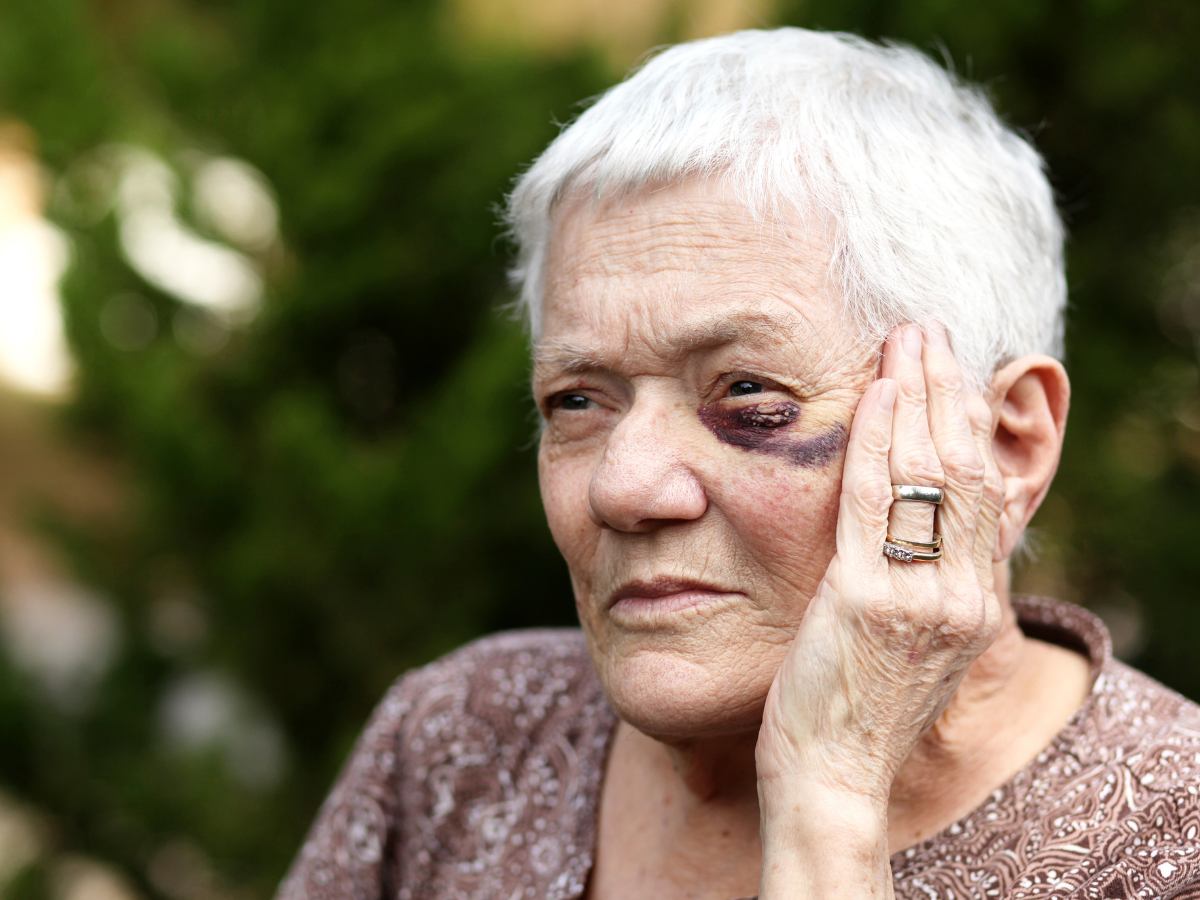Our deep respect and love for our elderly citizens highlights the need to ensure their welfare and safety. Elder abuse, whether it is physical, emotional, financial, or due to neglect, is completely unacceptable. Identifying the warning signs of nursing home abuse, such as unexplained injuries, changes in behavior, or financial irregularities, is essential for taking immediate action. To protect the dignity and well-being of our elderly, we must remain vigilant and take action to create environments where they can age with respect, safety, and dignity.
Nursing Home Abuse
Elder abuse involves intentional or negligent acts that cause harm or distress to individuals aged 60 or older. Prosecuting elder abuse cases requires demonstrating the perpetrator’s intent or negligence and establishing harm or adverse effects on the victim’s well-being. The most common forms of elder abuse include:
- Physical Abuse: Involves the infliction of physical harm or injury upon an individual, such as hitting, punching, pushing, or using restraints.
- Emotional Abuse: Includes verbal threats, intimidation, humiliation, isolation, or other behaviors that cause emotional distress, anxiety, or psychological harm.
- Financial Abuse: Involves the exploitation or misuse of an individual’s financial resources or assets, such as stealing money, forging signatures, or coercing them into signing over property or funds.
- Neglect: Refers to the failure to provide adequate care, assistance, or supervision to meet the basic needs of an individual, including food, shelter, medical care, hygiene, or safety.
- Sexual Abuse: Encompasses non-consensual sexual contact, harassment, coercion, or exploitation of an individual, including unwanted touching, sexual assault, or other forms of sexual violence.
Signs of Physical Abuse
Here are five signs of physical abuse:
- Unexplained Bruises, Cuts, or Fractures: Noticeable injuries without a plausible explanation or consistent occurrence of injuries.
- Sudden Weight Loss or Malnutrition: Drastic changes in weight or signs of malnourishment, indicating neglect or withholding of food.
- Changes in Behavior or Mood: Sudden changes in demeanor, such as becoming withdrawn, anxious, or fearful.
- Fear or Discomfort Around Specific Staff Members: Apprehension or unease when interacting with certain caregivers or staff members, suggesting potential mistreatment or abuse.
- Restricted Movement or Mobility: Difficulty moving, walking, or performing daily tasks due to unexplained injuries or physical limitations, indicating possible physical abuse or restraint.
Signs of Emotional Abuse
Emotional abuse is more challenging to observe due to its non-physical nature. Signs of emotional abuse include:
- Unexplained Withdrawal or Sudden Changes in Social Interactions: The individual may become increasingly isolated, withdrawn, or hesitant to engage in social activities they previously enjoyed.
- Unusual Changes in Sleep Patterns: Insomnia, frequent nightmares, or sleep disruptions could indicate emotional distress caused by abusive behavior.
- Emotional Distress, Depression, or Anxiety: Persistent feelings of sadness, hopelessness, worthlessness, or heightened anxiety without apparent cause may signal emotional abuse.
- Fearful or Anxious Behavior: The individual may exhibit signs of fear, anxiety, or apprehension, particularly around specific individuals or in certain situations, indicating emotional trauma.
- Low Self-Esteem or Self-Worth: Individuals experiencing emotional abuse may express feelings of inadequacy, shame, or self-blame, affecting their sense of self-worth and confidence.
Signs of Financial Abuse
A major form of elder abuse includes financial abuse, such as the rising threat of financial scams or even exploitation from close friends and family. Signs of financial abuse include:
- Unexplained Withdrawals: Transactions that the resident cannot explain or seem out of character indicate potential unauthorized access to funds.
- Missing Valuables: The disappearance of valuable items without explanation suggests theft or exploitation by caregivers or others.
- Sudden Changes in Financial Situation: Drastic alterations in financial status, such as depleted savings, accrued debt, or sudden poverty, without reasonable cause.
- Unauthorized Changes to Legal Documents: Modifications to legal documents without the resident’s consent or under compulsion, often to benefit the perpetrator financially.
- Unexplained Financial Transactions: Borrowing money without a clear purpose or evidence of repayment, potentially indicating exploitation or coercion for financial gain.
Signs of Neglect
Elder abuse can be associated with a caretaker’s failure to exercise due care for the individual. Signs of neglect include:
- Poor personal hygiene and unsanitary living conditions include an observable lack of cleanliness in personal grooming, clothing, or living space.
- Untreated medical conditions or lack of medical attention, including persistent health issues or injuries left unaddressed.
- Dehydration or malnutrition are signs of inadequate fluid intake or insufficient nutrition, which can lead to dehydration, weight loss, or malnourishment.
- Bedsores or other signs of inadequate care, like skin ulcers or pressure sores caused by prolonged pressure or immobility.
- Inadequate supervision or monitoring, especially in environments requiring assistance or support, puts the individual’s safety and well-being at risk.
Reporting Suspected Abuse
Reporting suspected abuse is vital for ensuring the safety and well-being of vulnerable individuals. If you observe any signs of abuse, document your observations thoroughly, including dates, times, and specific details of the incidents.
Contact the appropriate authorities immediately, such as Adult Protective Services (APS), law enforcement, or the facility’s administration. Be prepared to provide as much information as possible to facilitate investigation and intervention.
Remember, reporting suspected abuse is not only a legal obligation in many cases but also a moral imperative to protect those who may be suffering from harm or neglect.
Victims Can Seek Legal Recourse with New York Elder Abuse Attorneys
Consulting with a personal injury lawyer regarding elder abuse matters is essential for protecting the rights and well-being of vulnerable seniors. Attorneys specializing in elder abuse cases possess the knowledge to research important legal questions, investigate allegations thoroughly, and advocate for justice. They provide invaluable support in pursuing compensation for damages, holding perpetrators accountable, and implementing safeguards to prevent future abuse.
Consulting with one of the New York elder abuse lawyers at Wingate, Russotti, Shapiro, Moses & Halperin, LLP, can help ensure you have effective legal representation to safeguard the rights and dignity of older adults. Call our firm at (212) 986-7353 for a free consultation about your case today.



